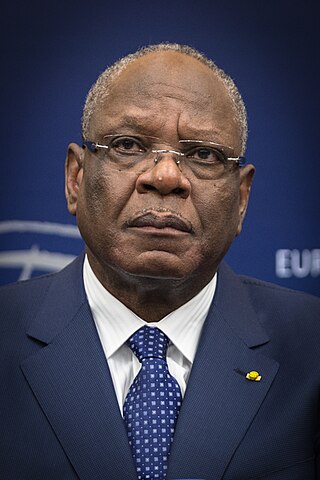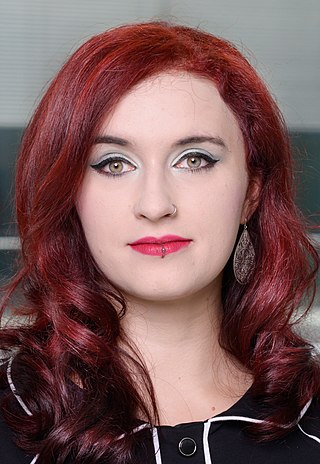Mali is located in Africa. The history of the territory of modern Mali may be divided into:
The Sudanese Union – African Democratic Rally (US-RDA) was a political party in Mali.

The Alliance for Democracy in Mali – African Party for Solidarity and Justice is a political party in Mali.

African Solidarity for Democracy and Independence is a communist party in Mali. It was founded by Cheick Oumar Sissoko and Oumar Mariko in 1996; Sissoko is the party's President and Mariko is its Secretary-General, the top post in the party. The party is Pan-Africanist in ideology, is affiliated internationally with the International Communist Seminar, a grouping organised by the Workers Party of Belgium, and is in part an outgrowth of the 1991 demonstrations against the military rule of President Moussa Traoré. Mariko was head of the Association of Students and Pupils of Mali (AEEM) during the 1991 protest movement which overthrew the government.

The Union for the Republic and Democracy is a political party in Mali, led by Soumaïla Cissé.

The National Assembly of Mali is the unicameral country's legislative body of 147 voting members.
The Union for Democracy and Development is a political party in Mali, led by Hassane Barry. In the 1 July and 22 July 2007 Malian parliamentary elections, the party won 3 out of 160 seats. The party is affiliated to the Alliance for Democracy and Progress, that supported president Amadou Toumani Touré.

General elections were held in Mali on 19 June 1979. They followed a 1974 referendum that approved a new constitution allowing for the direct election of the President for the first time. The country was a one-party state at the time, with the Democratic Union of the Malian People (UDPM) as the sole legal party. Its leader, Moussa Traoré, who had overthrown Modibo Keïta in 1968, was the only presidential candidate, and was elected unopposed. In the National Assembly elections several UDPM candidates were able to contest each seat, with 44% of the incumbent MPs defeated. Voter turnout was reported to be 97%.

Parliamentary elections were held in Mali on 13 June 1982. The country was a one-party state at the time, with the Democratic Union of the Malian People (UDPM) as the sole legal party. As a result, the UDPM won all 82 seats in the National Assembly. Voter turnout was reported to be 96.0%.

General elections were held in Mali on 9 June 1985. The country was a one-party state at the time, with the Democratic Union of the Malian People (UDPM) as the sole legal party. Its leader, Moussa Traoré, was the only candidate in the presidential election, and was elected unopposed. In the National Assembly elections several UDPM candidates were able to contest each seat.
The National Youth Union of Mali was a youth organization in Mali. UNJM was the youth wing of the ruling UDPM. UNJM held its first national council meeting in 1979. Mahamadou Baba Diallo served as the general secretary of UNJM.

Parliamentary elections were held in Mali on 24 November 2013. President Ibrahim Boubacar Keïta's party, Rally for Mali, won 66 of the 147 seats in the National Assembly, with its allies winning an additional 49 seats, giving it a substantial majority. The Union for the Republic and Democracy, led by Soumaïla Cissé, won 17 seats, becoming the Opposition.

The Malian Union for the African Democratic Rally is a political party in Mali led by Bocar Moussa Diarra.

The Union of Patriots for Renewal is a political party in Mali led by Moussa Bamadio.

The Party for Independence, Democracy and Solidarity is a political party in Mali.

Agnieszka Brugger is a German politician who has been serving as a member of the German Bundestag since 2009.

Pascal Kober is a German military chaplain and politician of the Free Democratic Party (FDP) who has served as a member of the Bundestag from the state of Baden-Württemberg from 2009 to 2013 and again since 2017.
Amadou Baba Diarra was a Malian politician and military figure. Diarra was the second vice president of ruling junta from 1968 to 1979.








